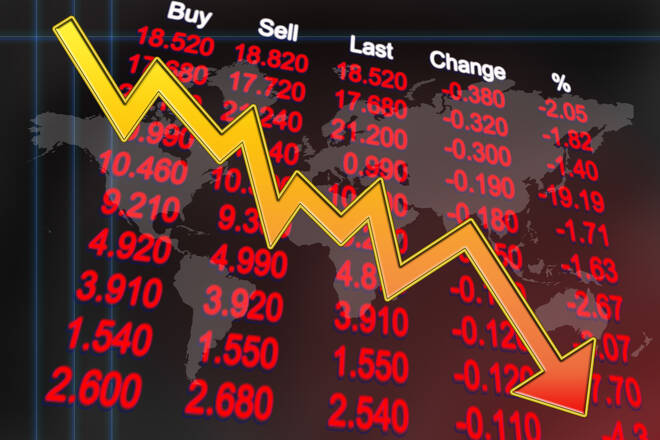Advertisement
Advertisement
US Stock Futures: Edging Higher as Colonial Pipeline Restarts; Inflation Fears Still Linger
By:
U.S. consumer prices increased by the most in nearly 12 years in April as booming demand amid a reopening economy pushed against supply constraints.
The major U.S. stock index futures contracts are edging higher in Thursday’s pre-market trade, shortly after the markets were overpowered by steady pressure on technology-related stocks. The relentless selling pressure drove the Dow Jones Industrial Average to its worst day since January.
An announcement that Colonial Pipeline has restarted its operations at 21:00 GMT on Wednesday calmed some investors who had been concerned about its continued ability to supply the East Coast with gasoline, CNBC reported.
In the early session on Thursday, the benchmark June E-mini S&P 500 Index futures are trading 0.29%. The blue chip Dow Jones Industrial Average is up 0.28% and the tech-driven NASDAQ Composite Index is advancing 0.42%.
Colonial Pipeline said in a statement that it could take “several” days for the supply chain to return to normal service, but that it would move as much gasoline, diesel and jet fuel as is safely possible as it works to restore normal operations after a hack cause it to suspend service last week.
Wednesday Recap
Wall Street Closes Sharply Lower as Inflation Fears Heat Up
U.S. stocks closed lower on Wednesday with the S&P 500 Index suffering its biggest one-day percentage drop since February, as inflation data fueled concerns over whether interest rate hikes from the Fed could happen sooner than anticipated, Reuters reported.
US Consumer Prices Post Largest Gain since 2009 as Inflation Ramps Up
U.S. consumer prices increased by the most in nearly 12 years in April as booming demand amid a reopening economy pushed against supply constraints, which could add fuel to financial market fears of a lengthy period of higher inflation.
The report from the Labor Department on Wednesday also showed a strong buildup of underlying price pressures, extending a stocks selloff on Wall Street. Most economists were, however, unwavering in their belief that the surge in prices would be temporary, noting that the main drivers of the bigger-than-expected inflation increase were hotels and airlines, industries that were hardest hit by the coronavirus pandemic, Reuters reported.
The consumer price index jumped 0.8% last month, the largest gain since June 2009. The CPI rose 0.6% in March. Economists polled by Reuters had forecast the CPI would climb 0.2%. In the 12 months through April, the CPI shot up 4.2%. That was the largest gain since September 2008 and followed a 2.6% increase in March. The jump mostly reflected the dropping of last spring’s weak readings from the calculation.
In the 12 months through April, the core CPI jumped 3.0%, also boosted by base effects. That was the biggest increase since January 1996 and followed a 1.6% advance in March.
Odds and Ends
Market-leading mega-caps, including Amazon.com Inc, Apple Inc, Alphabet Inc, Microsoft Corp and Tesla Inc weighed heavily as investors shied away from what many feel are inflated valuations.
In other news, first-quarter earnings season is on the wane, with 456 constituents of the S&P 500 having reported. Of those, 86.8% have beaten consensus estimates, according to Refinitiv IBES.
For a look at all of today’s economic events, check out our economic calendar.
About the Author
James Hyerczykauthor
James Hyerczyk is a U.S. based seasoned technical analyst and educator with over 40 years of experience in market analysis and trading, specializing in chart patterns and price movement. He is the author of two books on technical analysis and has a background in both futures and stock markets.
Advertisement
